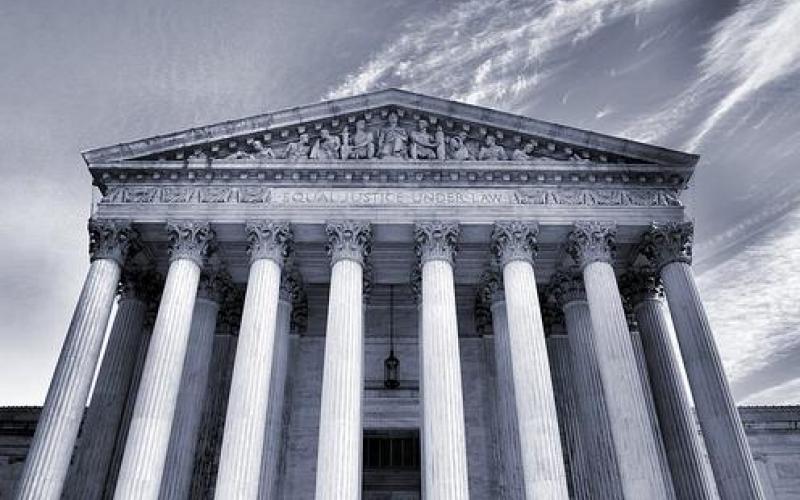
It is not correct to say that racism is a problem affecting black people only. Regardless of whether or not they have the means and advantages of history to institutionalize racism, black people can be racist.
Sobantu, you say: "Black people can never be racist – we never had the tools or power to institutionalize racial oppression...." and..."black people do not have the resources to impose socio–economic structures which enforce their superiority....", etc.
That is like standing before the court accused of murder and saying, "I cannot be a killer because I cannot afford a gun!" Guns don't kill, people do. If you, inside of you, are a killer, you can kill someone using any of the other "millions" of ways to kill someone. You can strangle them, poison them, stab, bewitch them, etc.
At the end, it is NOT the means, tools, power, resources, systems, structures, etc, which you use that define who you are (or name what you do), but rather it is the result of what you do that does - regardless how small scale/personal it was. Most important to understand is that, it is NOT YOU the doer who defines the meaning of what you to the recipient, but the recipient does. They do this by the means of how they perceive/feel affected/experience/ what you did to them.
That is why not all that you call racial discrimination or racism by whites is called by the same name by the whites who do them to you. Why? Because it is not for them to name what they do to you (because they do not know how it TRULY makes you feel or affects you). Only you, the recipient, can truly understand what it means to you - by means of how it affects you or makes you feel - and hence only you can name it.
Institutions don't racially discriminate people, people do. Institutions NEVER institutionalize anything, people, who run the institutions, do. So whatsoever is institutionalized, it is simply a reflection of the minds and intentions of the individual persons behind the institution who use the institution to "carry their image".
Institutionalization is a level/grade of an action at which it is done, but not a defining criteria for an action itself. Corruption done by an individual person is corruption. When it is done by a system/institution - it is still corruption. As it is for any other action that someone can do to you and it will affect you - with or without institutionalization. If someone rapes you, it doesn't have to be institutionalized for you to feel its effects. Same with a whipping, theft/robbery, etc. Institutionalization increases the scale, intensity, effects and side effects but does not define the action.
Your argument is borne out the inferiority complex that affects most of US black people (Note: I am a black person - and indeed an African - too), that we are “too small" to make an impact! So much that we think that even whatever evil we can do to a "superior" white person, it can not affect them because they are too big to be affected by such too small a people like we are! Which is wrong. Completely wrong. If you ever felt a certain way after something was done to you, an Indian will feel the same way, a Chinese, a white, an Aboriginal, etc.
All people are (created) equal, and they, from individual level, can be affected similarly by similar experiences. We only differ on our abilities to absorb/manage/handle the experiences. And this difference is not racial - it is personal. All races have strong people – who will stamp their way on fire to get what they want. All races have weak people - who will struggle with the smallest of life’s challenges that never even caught your attention when it crossed you path.
Finally (at least for now), while I understand what (mostly South) Africans have suffered in the hands of racists, using institutionalized mechanisms, I also strongly call for all my fellow Africans to not allow those evil experiences to shape how we think of ourselves, how we think about others, how we think about our (inter-)relations with other races - and most importantly – how we think about our future.
For a further amicable discussion and exchange of views, opinions and perspectives on this subject, you can reach me through [email protected]
*Mussa Billegeya is Programme Manager, Rosa Luxemburg Foundation, East African Regional Office, Dar es Salaam, Tanzania.
* THE VIEWS OF THE ABOVE ARTICLE ARE THOSE OF THE AUTHOR AND DO NOT NECESSARILY REFLECT THE VIEWS OF THE PAMBAZUKA NEWS EDITORIAL TEAM
* BROUGHT TO YOU BY PAMBAZUKA NEWS
* Please do not take Pambazuka for granted! Become a Friend of Pambazuka and make a donation NOW to help keep Pambazuka FREE and INDEPENDENT!
* Please send comments to [email=[email protected]]editor[at]pambazuka[dot]org[/email] or comment online at Pambazuka News.
- Log in to post comments
- 3220 reads



































